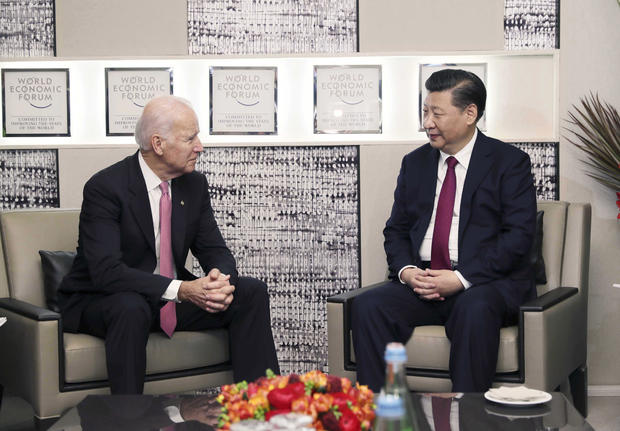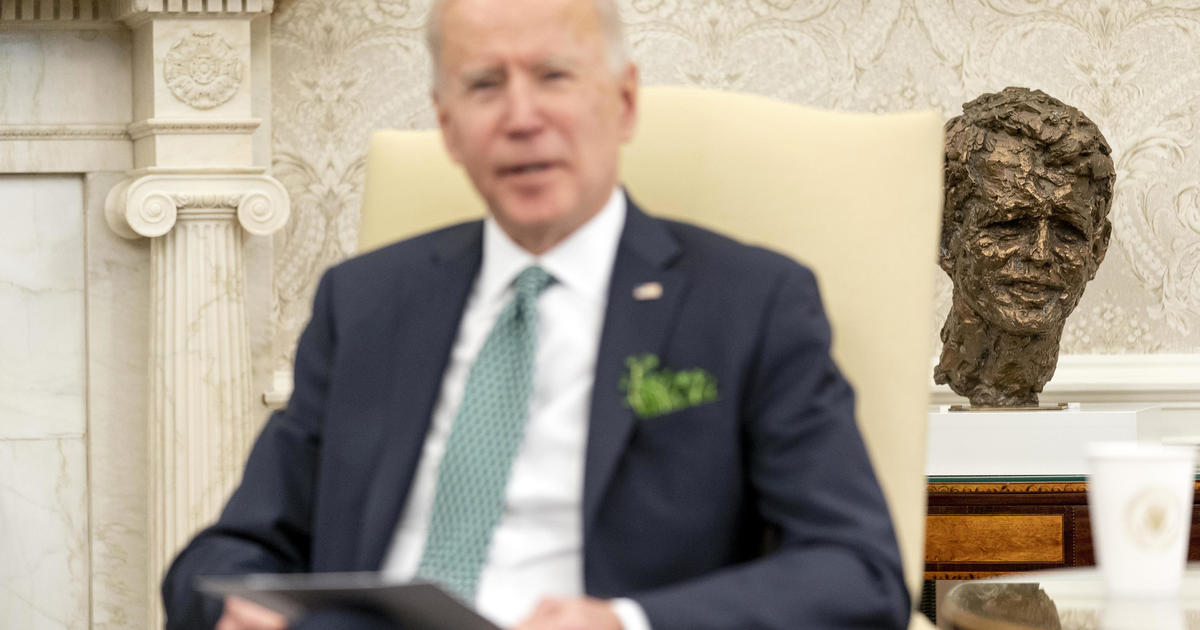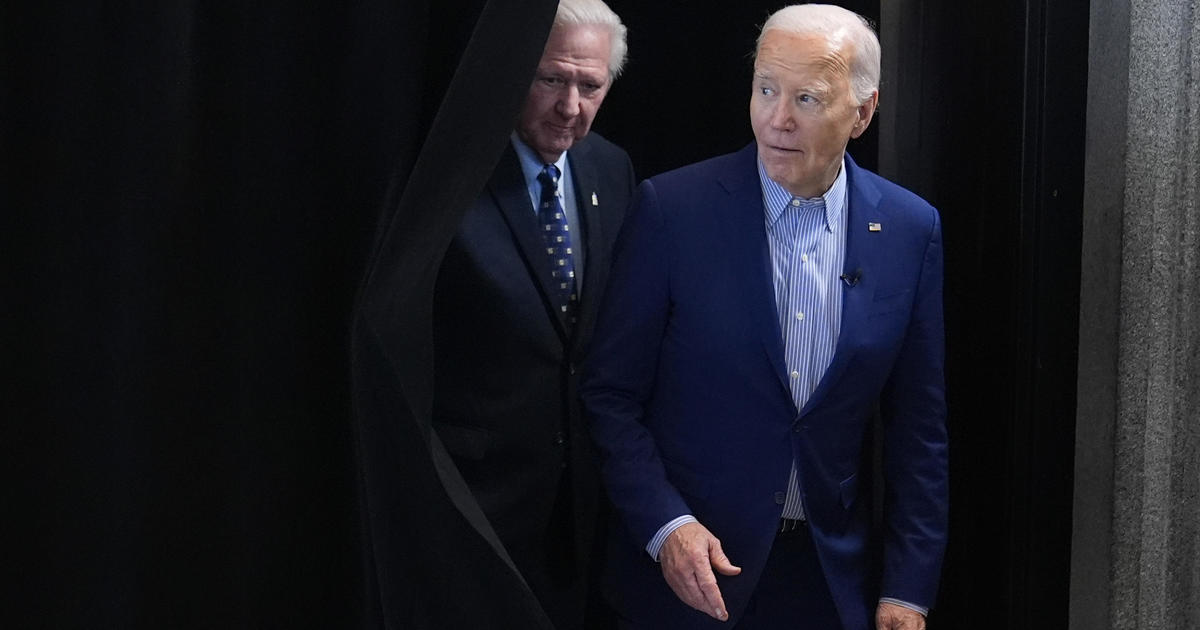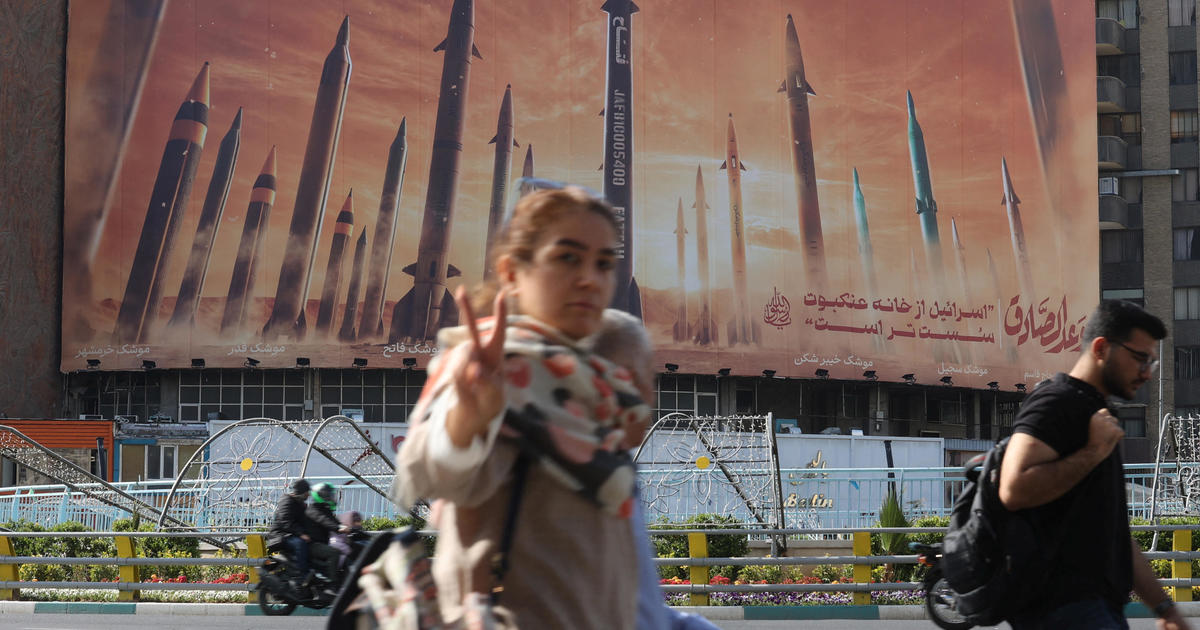Biden to hold "candid and direct" talks with Chinese President Xi Jinping
Hong Kong — President Joe Biden was scheduled to hold a face-to-face summit with Chinese leader Xi Jinping on Monday. The meeting, via video conference, will be the most significant U.S.-China talks since Mr. Biden took office. The discussion is to begin at 7:45 p.m. Eastern time, and is expected to last "several hours" with the aim, according to a senior Biden administration official, being to keep the lines of communication between the world's two biggest economies open to ensure that "competition doesn't lead to conflict."
Mr. Biden will be "direct and candid about areas of concern," the U.S. official said. Those areas likely include China's record number of incursions into Taiwan's air defense zone in recent months; human rights issues in Xinjiang, Tibet and Hong Kong, and Beijing's use of economic coercion and cyber technology. Ongoing supply chain issues and trade tariffs are not expected to be a priority during the conversation.
The White House official downplayed the likelihood of any major policy changes or diplomatic breakthroughs, amid bilateral tension that has risen to near its worst level since the U.S. and China normalized diplomatic ties in 1979.
Over the weekend, as a prelude to the presidential talks, the top diplomats of both countries spoke on the phone. China's Foreign Minister Wang Yi stressed the importance of "meeting each other half way," to ensure a smooth summit, according to China's state-run Global Times. He also warned his counterpart, U.S. Secretary of State Antony Blinken, that Washington should not support independence for Taiwan.
"The Secretary emphasized longstanding U.S. interest in peace and stability across the Taiwan Strait and expressed concern regarding [China's] continued military, diplomatic, and economic pressure against Taiwan," said U.S. State Department spokesperson Ned Price, noting that Blinken had "urged Beijing to engage in meaningful dialogue to resolve cross-Strait issues peacefully and in a manner consistent with the wishes and best interests of the people on Taiwan."
Mr. Biden should head into his discussion with Xi just hours after signing his $1.2 billion bipartisan infrastructure bill into law — a win for him and his administration. White House officials believe the timing means Mr. Biden will come into the summit with a "strong hand," and "well-positioned to engage President Xi."
But President Biden's domestic approval rating has fallen to a new low of 41%, according to a poll released on Sunday. With U.S. mid-term elections looming next year, he will likely hold off on any moves that could open him or fellow Democrats up to criticism of being soft on China.
The summit "will mark a turning point in China-U.S. relations, signaling that despite all the differences and difficulties in the bilateral relations, the two leaders believe that the two countries can talk with and engage with each other, rather than letting the relations get out of control," Chinese foreign affairs analyst Victor Gao, Chair Professor at Soochow University, told CBS News.
Gao said he hoped the direct talks between the leaders would serve to "reduce and minimize strategic mistrust and prevent strategic miscalculation, and enhance mutual understanding of each other's key strategic positions."
"China and the U.S. need to get along with each other — for their own benefits and for world peace and stability as a whole," said Gao. "I believe the virtual summit will bring a collective sigh of relief for mankind."
Xi will come into the discussion in one of his strongest domestic positions ever.
China's Communist Party, in a meeting of the country's top 370 leaders on Friday, elevated the 68-year-old president to the same status as modern China's founder, Mao Zedong, of the 1940's, and its paramount leader Deng Xiaoping, who held the presidency during the 1980's. They're China's two most powerful leaders of the past 100 years. Xi's official ascendance to their status came through a so-called "historical resolution" — only the third one drafted since China's Communist Party was founded in 1921.
The resolution extolled Xi's leadership since he took control in 2012, saying China had "made historic achievements and undergone a historic transformation" with him as president.
Ultimately, the declaration puts Xi on the strongest possible footing as he heads into a year in which many expect to see him vie for an unprecedented third term as president.
Under Deng, China instituted a two-term limit on its presidents as he worked to dismantle the cult of personality that had built up around Mao.
But Xi appears to be bringing back some of the cultish fervor around the country's top leader. This time next year, it would be more of a surprise to Chinese citizens and China watchers around the world if Xi did not continue to build his legacy, by continuing his leadership of the country.
Supporters and critics might even agree that, if that does happen, it could signal the return of a Chinese emperor — for life, and for the 21st century.





